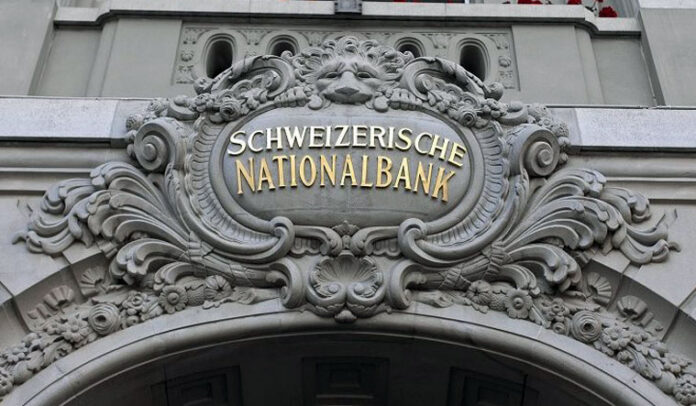In a surprising move, the central banks of Norway and Switzerland have emerged as significant shareholders in MicroStrategy, a Virginia-based business intelligence firm. This development has sparked speculation about the underlying motivations behind these apex financial institutions’ investments, with many analysts suggesting that it could be an indirect play on the burgeoning cryptocurrency market, particularly Bitcoin.
Norway’s Norges Bank Holds Over 1 Million MicroStrategy Shares

Norges Bank, Norway’s central bank and the institution responsible for managing the country’s Government Pension Fund, has disclosed a substantial holding of 1.123 million shares in MicroStrategy. This investment represents a significant stake in the company, which is widely recognized as the largest corporate holder of Bitcoin, with a portfolio exceeding $13 billion in value.
While the official reasoning behind Norges Bank’s decision to invest in MicroStrategy remains unclear, industry analysts have proposed several plausible explanations. One working theory suggests that the Norwegian central bank may be seeking indirect exposure to Bitcoin through its investment in the software firm, given MicroStrategy’s well-publicized Bitcoin acquisition strategy.
This move by Norges Bank is being closely watched by the cryptocurrency community, as it could signal a broader shift in the attitudes of traditional financial institutions towards digital assets. The investment may be interpreted as a vote of confidence in Bitcoin’s long-term potential, potentially paving the way for increased institutional adoption and further price appreciation.
Related Read: The Bitcoin Whale: How MicroStrategy Became the Largest Corporate Holder of Bitcoin
Swiss National Bank Boosts MicroStrategy Holdings by 60%

In a similar development, the Swiss National Bank (SNB) has also emerged as a significant investor in MicroStrategy, holding 466,000 shares in the company. Interestingly, this represents a 60% increase in the SNB’s MicroStrategy holdings compared to the previous quarter.
The Swiss central bank’s decision to increase its stake in MicroStrategy has raised eyebrows within the financial community. While the SNB has not explicitly stated its reasons for this investment, the move is being interpreted as a potential indication of the bank’s bullish outlook on the cryptocurrency market, particularly Bitcoin.
Given the reputation and economic influence of the Norwegian and Swiss central banks, their investments in MicroStrategy could be seen as a significant endorsement of the company’s Bitcoin-centric strategy. This development may further bolster investor confidence in the long-term viability of Bitcoin as a viable asset class, potentially paving the way for increased mainstream adoption and a surge in its market value.
Other Institutional Investors Flock to MicroStrategy
The Norwegian and Swiss central banks are not the only prominent financial institutions to have taken an interest in MicroStrategy. In July 2023, the company’s shares attracted investments from major players such as Goldman Sachs, BlackRock, and Fidelity, further underscoring the growing institutional appetite for exposure to the cryptocurrency market.
The Transformation of MicroStrategy into a Bitcoin Fund
MicroStrategy’s transformation into a de facto Bitcoin fund has not gone unnoticed by industry observers. The company’s strategic shift towards acquiring and holding Bitcoin has effectively turned it into a unique investment vehicle, offering institutional investors a means of gaining exposure to the cryptocurrency without directly investing in it.
Challenges and Limitations of the MicroStrategy Model
While the MicroStrategy model has proven successful in attracting institutional investment, it may not be easily replicable by other public companies. The dramatic shift required to emulate the firm’s Bitcoin-centric approach could be too risky for most, potentially limiting the broader adoption of this strategy among publicly traded entities.
Regulatory Constraints and Central Bank Investments
One of the key factors driving central banks’ indirect investments in Bitcoin through MicroStrategy may be the regulatory constraints they face when it comes to directly investing in volatile digital assets. By acquiring shares in the software firm, these apex financial institutions can gain exposure to Bitcoin’s performance without breaching existing regulations.
The Evolving Regulatory Landscape and Bitcoin’s Future
The regulatory environment surrounding cryptocurrencies has been a subject of ongoing debate and uncertainty. As central banks and other institutional investors continue to explore ways to incorporate digital assets into their investment portfolios, the need for clear and coherent regulatory frameworks becomes increasingly apparent.
Should regulatory authorities provide more clarity and favorable policies towards cryptocurrencies, it could pave the way for even greater institutional adoption of Bitcoin and other digital assets. This, in turn, could lead to significant price appreciation and further solidify Bitcoin’s position as a mainstream investment option.
Conclusion: Central Banks’ Bitcoin Bets and the Future of Cryptocurrency
The investments made by the Norwegian and Swiss central banks in MicroStrategy, the largest corporate holder of Bitcoin, have sent shockwaves through the cryptocurrency community. These apex financial institutions’ indirect exposure to Bitcoin through their MicroStrategy holdings suggests a growing institutional confidence in the long-term potential of digital assets.
As the regulatory landscape continues to evolve and more institutional players enter the cryptocurrency market, the future of Bitcoin and other digital currencies may be poised for a transformative shift. The actions of central banks, such as Norges Bank and the Swiss National Bank, could serve as a harbinger of a new era in which cryptocurrencies become an integral part of the global financial system.













